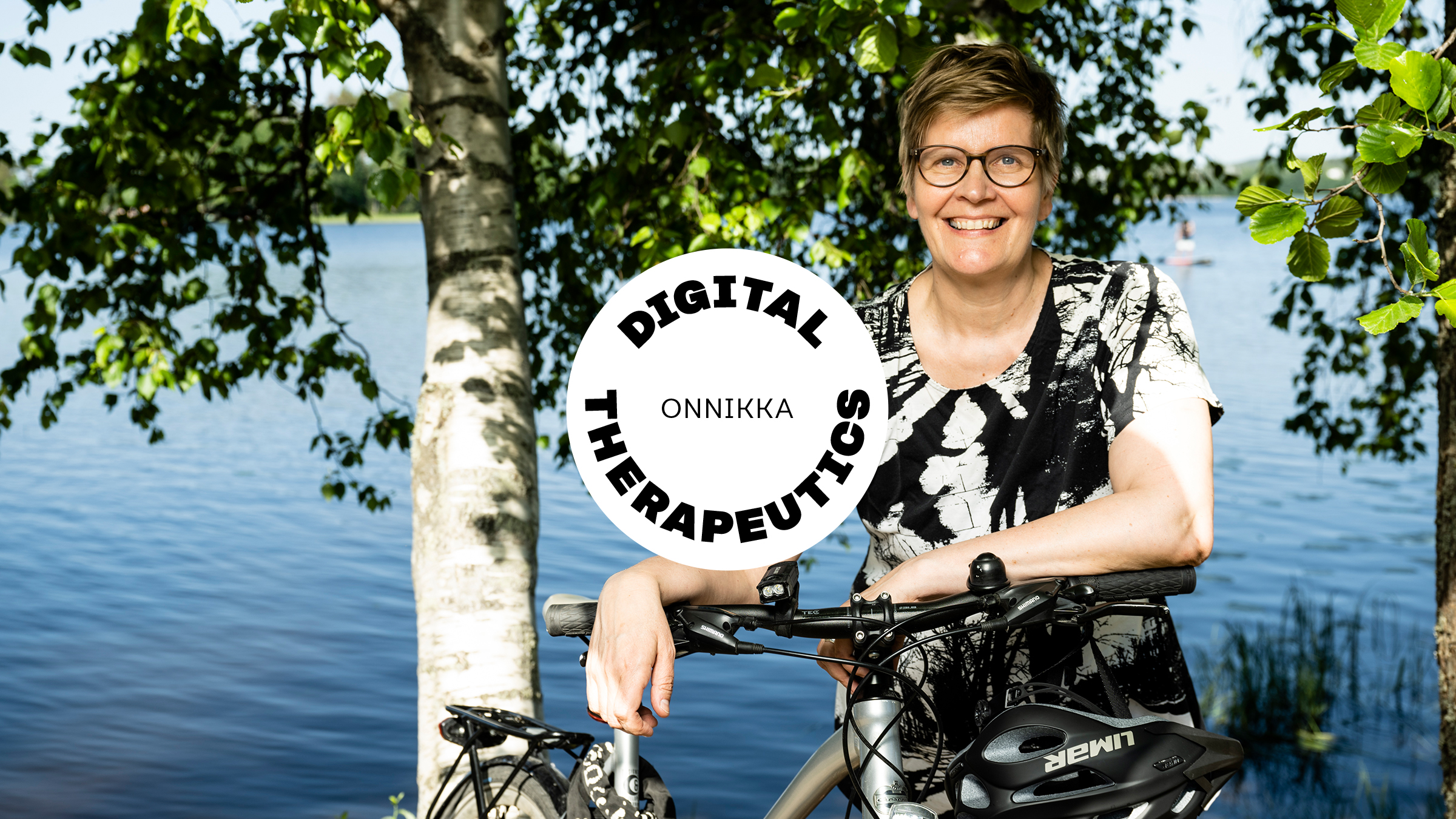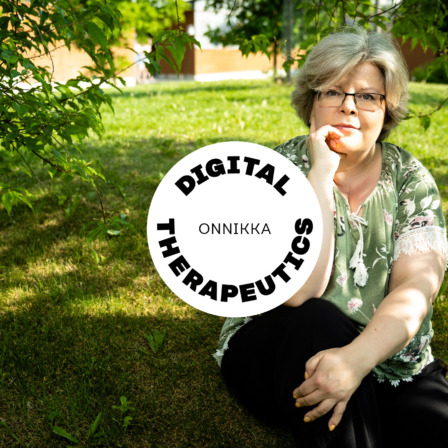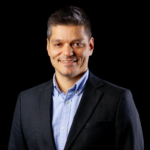“I was diagnosed with arthritis in my knee last year. You can’t stop it, but you can delay its progression. I thought, I have thirty years to live and I want to live it actively as I have done so far.
I have enough of these typically Finnish inherited chronic diseases : the tendency in adulthood to diabetes and heart disease.
In all of these, obesity is the major risk factor. I’ve always been a bit overweight, but in recent years the hormonal changes you get with menopause have increased my weight.
When I saw the news item in Keskisuomalainen newspaper that city of Jyväskylä was going to test the Onnikka weight management app, I realised that this was my chance.”
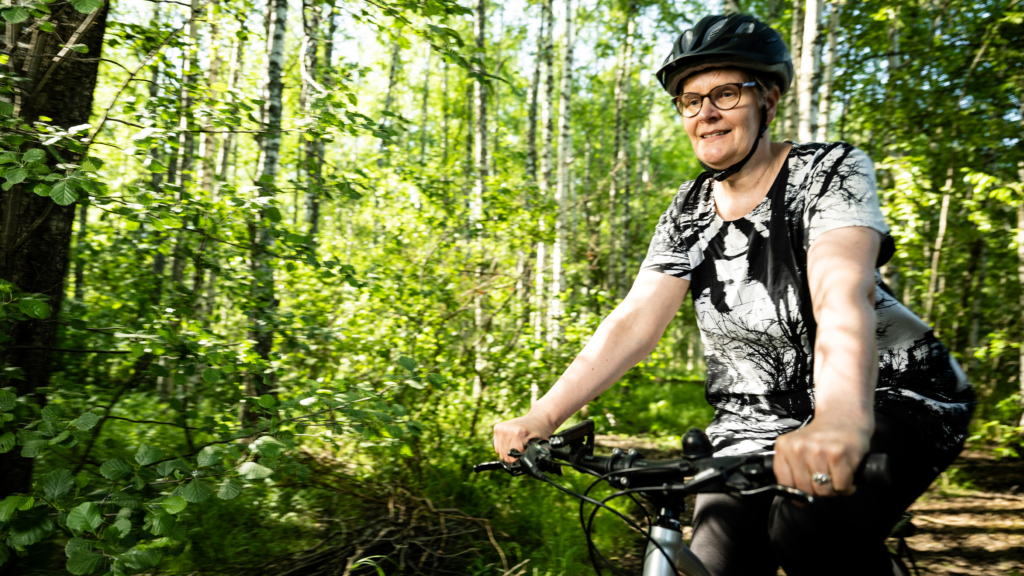
The down-to-earth style appealed
“I liked Onnika’s down-to-earth style. It’s not pretentious or bossy but refers to research. The style appealed to me as I myself have a research background. The information comes in suitably sized chunks and the questions challenge you to think.
I didn’t actually learn anything new, as there’s so much information on weight management everywhere. But thanks to the app, I started to monitor my eating habits and be more aware of my eating.
I used to eat too much unwittingly. When my spouse would have an evening snack, I’d have one with him.
Then, I started to wonder if I needed this snack and if I was really hungry. I started having smaller portions. One helping is enough to see me through to the next meal.
I didn’t become neurotic about dieting. There was still ice cream and a beer.
That’s why I was surprised when my weight started to drop quite suddenly. I had that yay feeling, that this was really working, and I started competing with myself. Within a year I’d lost nearly seven kilos, well over 5% of my initial weight. Ten centimetres melted off my waist. My cholesterol and blood fat levels improved.
Maybe the change of diet worked so well because I’ve always been pretty good at exercise.
When I was younger, I was an avid cyclist. In Helsinki, I used to cycle more than 25 kilometres to work in each direction. In Jyväskylä, my commute is only two kilometres, but now I’ve got winter tyres on my bike so I can also ride it in winter. And I cycle for pleasure and to go shopping, because everything is close by in the city.
At the same time as starting the Onnikka trial, I started to rehabilitate my sore knee with aqua jogging, hydrobics and gym. Movement lubricates the knee better, and as my weight is reduced, it’s also better able to withstand walking. Recently, I managed to hike a pain-free five-kilometre trail in a national park.
The increase in exercise has reduced my craving for sweets. Exercise gives me the right kind of appetite, with less of a sweet tooth.”
Enjoying other things
Onnikka has given me many small insights into my daily life.
My work is sometimes stressful, and I’m a worrier by nature. I would often tried to relieve the tiredness and pressure of a day’s work by eating. I’d flop on the sofa, felt ravenous and snacked on sweets.
Now I look for pleasure in other things, like reading or even just going for a short walk. When my crave sweet things, I wonder if I’m really hungry, if maybe I’m just thirsty, or if I could just let it go without responding in any way. Even diluted juice can do the trick.
One day the Onnikka app asked me: ‘Have you ever heard of someone who has gained weight by eating vegetables and fruit?’
I’ve started buying more berries and other fruit, and they’re becoming a treat. I still eat the norm, but less than I used to. A small portion of ice cream with berries gives the same pleasure as a big portion without berries.
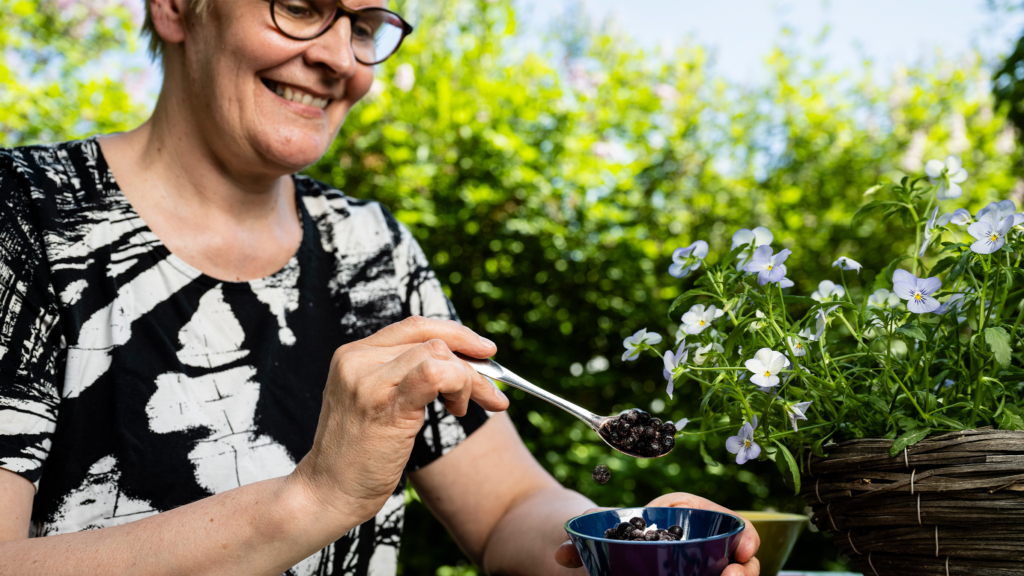
I have started to watch my protein intake. I add hemp powder and cottage cheese to my porridge.
It’s also important to watch the rhythm of your meals. Six hours between lunch and dinner is too long, so I have a snack at work. Without it, I’d get so hungry that I’d want to eat too much at dinner.
I’ve never had to say no to anything. I just think more carefully about eating.
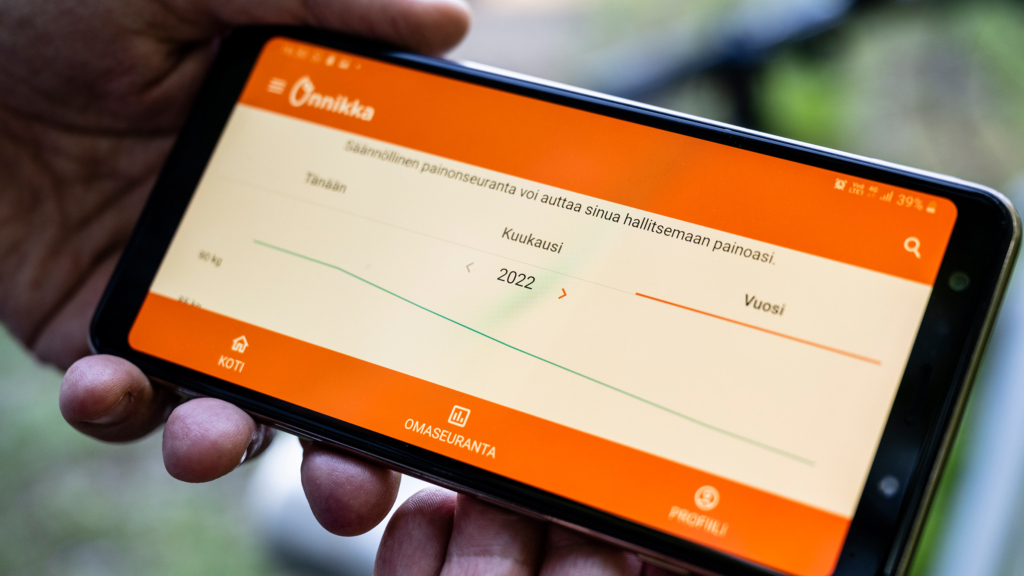
Onnikka talked a lot about relapses and how to deal with them. It hasn’t been a problem for me. If it’s a treat day with family, so what! It’s not like it’s going to crash in just one day. The most important thing is what you do most of the time in your daily life.”
The pilot project was part of Sitra’s Health Data 2030 project, which develops solutions and ground rules for cross-border use of health data in Europe and supports the competitiveness of the Finnish health sector. Sitra’s aim has been to gather information on the use of new digital therapies as part of the care workflow.
Read more
Read more about the experiences of other patients and care staff during the trial.
